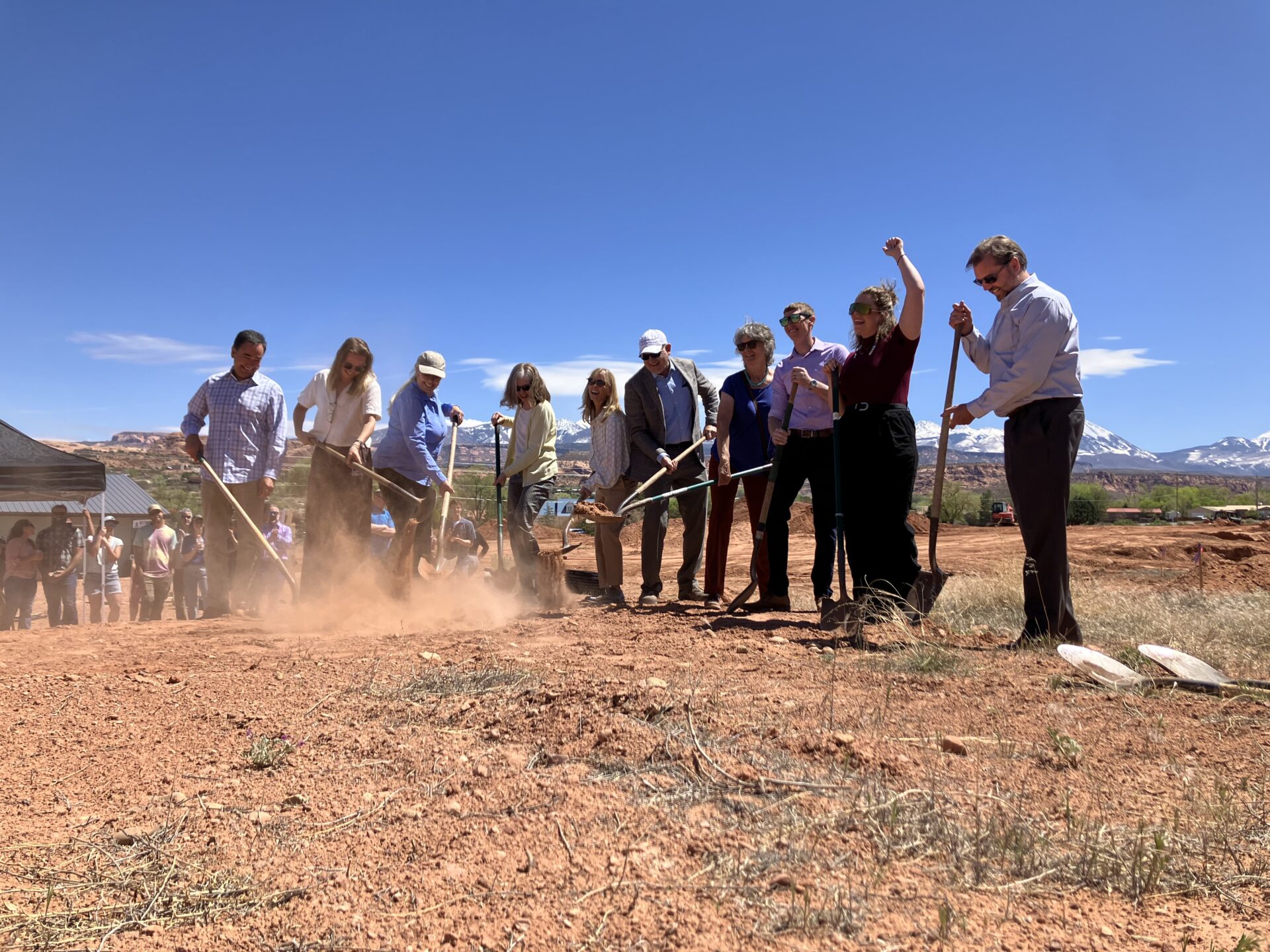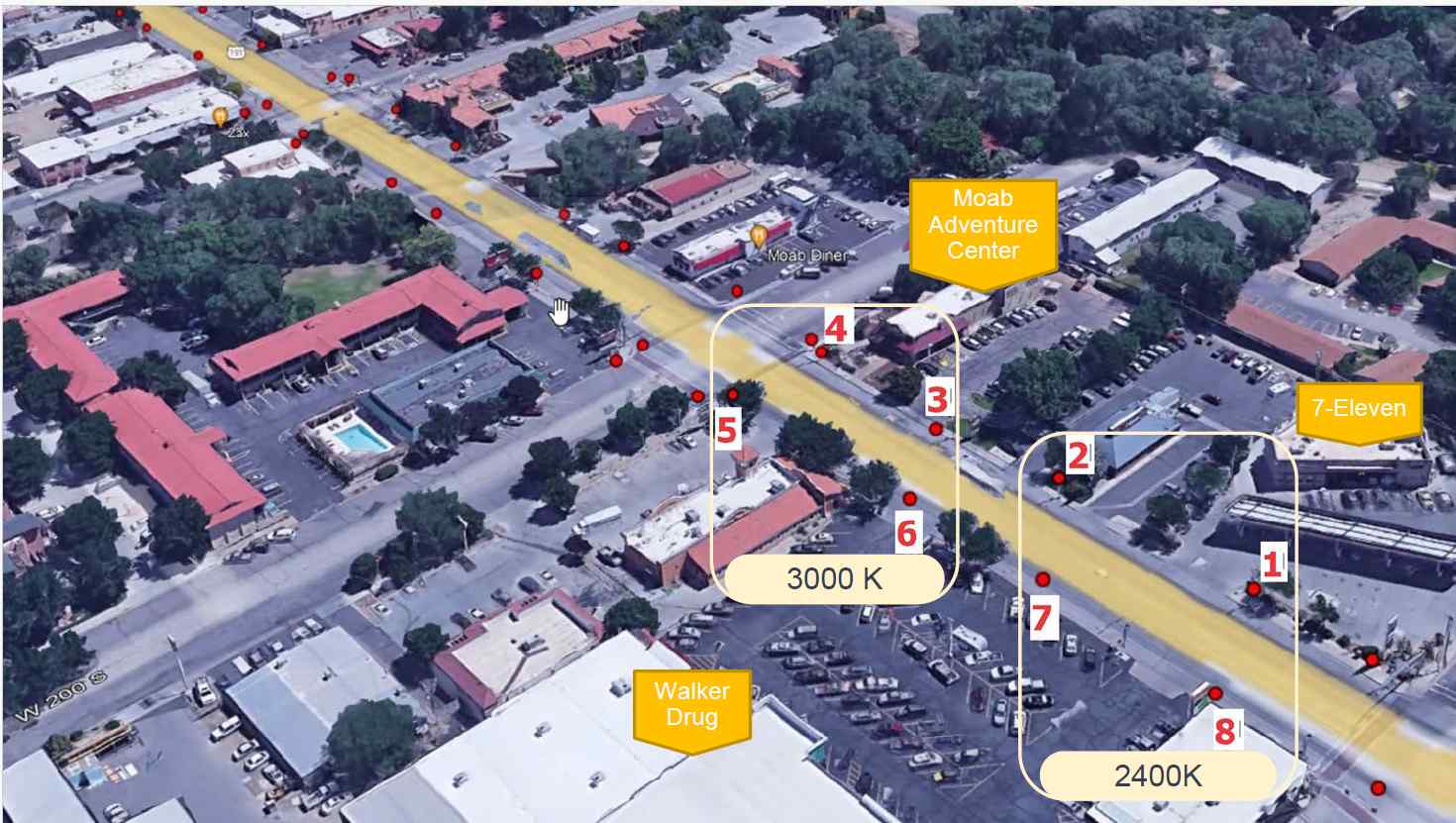
For years, Moab residents have watched as a local housing crisis has escalated, leaving many who are renting or in temporary housing in despair over ever being able to own a home in the place they love.
“Owning a home just didn’t seem like an option here,” said Karissa DeDecker, a local graphic designer. “I didn’t have any options. My option was to leave Moab permanently and I didn’t want to do that.”
However, DeDecker said these words from the kitchen of her new home in the Arroyo Crossing subdivision, one of eight new homeowners to move in through the Housing Authority of Southeastern Utah’s Mutual Self Help program this month.
Mutual self-help programs offer a path to an affordable home through a loan from the USDA, which requires participants to contribute to physically building their own home–and their neighbors’. Local nonprofit Community Rebuilds is also supported by the self help program. The paperwork and qualification screening can be arcane, as it was drafted in the 1940s.
“I actually have a list of acronyms that I give out to people to make sense of things,” said Matt Miller, HASU’s program manager, who is responsible for helping participants navigate the program’s regulations.
“It can be a lot of paperwork and a little bit Byzantine at times,” Miller said, “but the outcome is what makes it worth it.”
Prospective participants sign up to be on a waitlist for the program, and are then vetted to see who fits USDA requirements governing income, debt, and other financial issues. Miller guides folks through the process of qualifying.
Those chosen must learn how to build homes and work together to create a neighborhood, spending around 30 hours a week for nine months working in exchange for an affordable home.
When the building began, Karissa DeDecker had never picked up a power tool. At one of the first meetings that HASU held for the future homeowners, the group built sawhorses together to learn the basics of using the common tools. That sawhorse was the first thing DeDecker had ever built and she’s hung onto it, giving it a place of honor in her home.
“I got on the waitlist five years ago,” DeDecker said. “People told me that even if I didn’t know what my future was going to be, it was good to have that idea and possibility set. And I’m so glad I did. It took five years, but it was perfect timing.”
Miller encourages people trying to navigate Moab’s housing market to get on the HASU self-help list.
“If you’re a working person, you can have a home in Moab,” Miller said. “Yes, the wait list is lengthy, but that gives you time to talk to me and we can help you.”
DeDecker said that she now encourages others to add their name, pointing out that participants don’t need to be afraid even if they have little construction experience.
“It seems like when people are hesitating to get on the list, they think ‘I don’t know how to do that,’’’ she said. “But we learn skills slowly for each phase and get really confident by the end.”
Participants in the self help program are supported by HASU construction supervisors Sam Newman and Lindsey Clements, who structure the build and help educate the families. [Sam Newman is this writer’s husband. It’s a small town! – ed.]
HASU mutual self help builds have provided over 170 single family homes in the Moab Valley, and are beginning another eight homes and a four-unit townhome in Arroyo Crossing now.
“That’s another 12 families,” Miller said. “It’s easy to forget about how important that is in the middle of a build when I’m paying a million bills and doing all kinds of documentation, but providing houses for working people who wouldn’t be able to afford it on the private market is probably the most rewarding thing I could do.”
For DeDecker, the process has led not only to a permanent home but to doing things she never expected to do in Moab. Simple things like planting a garden and adopting a dog.
“I’ve been wanting a dog for 33 years and I’ve never been able to get one. Planting a garden, it’s an investment. It feels unbelievable,” she said. Even better, though, is having a neighborhood filled with families that she feels deeply connected to.
“We all went through this process together: a variety of people who might not ever have met or been friends will always love and know each other because we built our homes together,” she said.
Interested in the self-help program? Download the Pre-Application Qualification Form at www.hasuhomes.org/mutual-self-help or pick one up at the HASU office (321 E. Center Street).
HASU encourages applicants to also get on the Community Rebuilds self help list, a separate organization which also utilizes the same USDA-Rural Development 502 loan: www.communityrebuilds.org/become-a-homeowner



